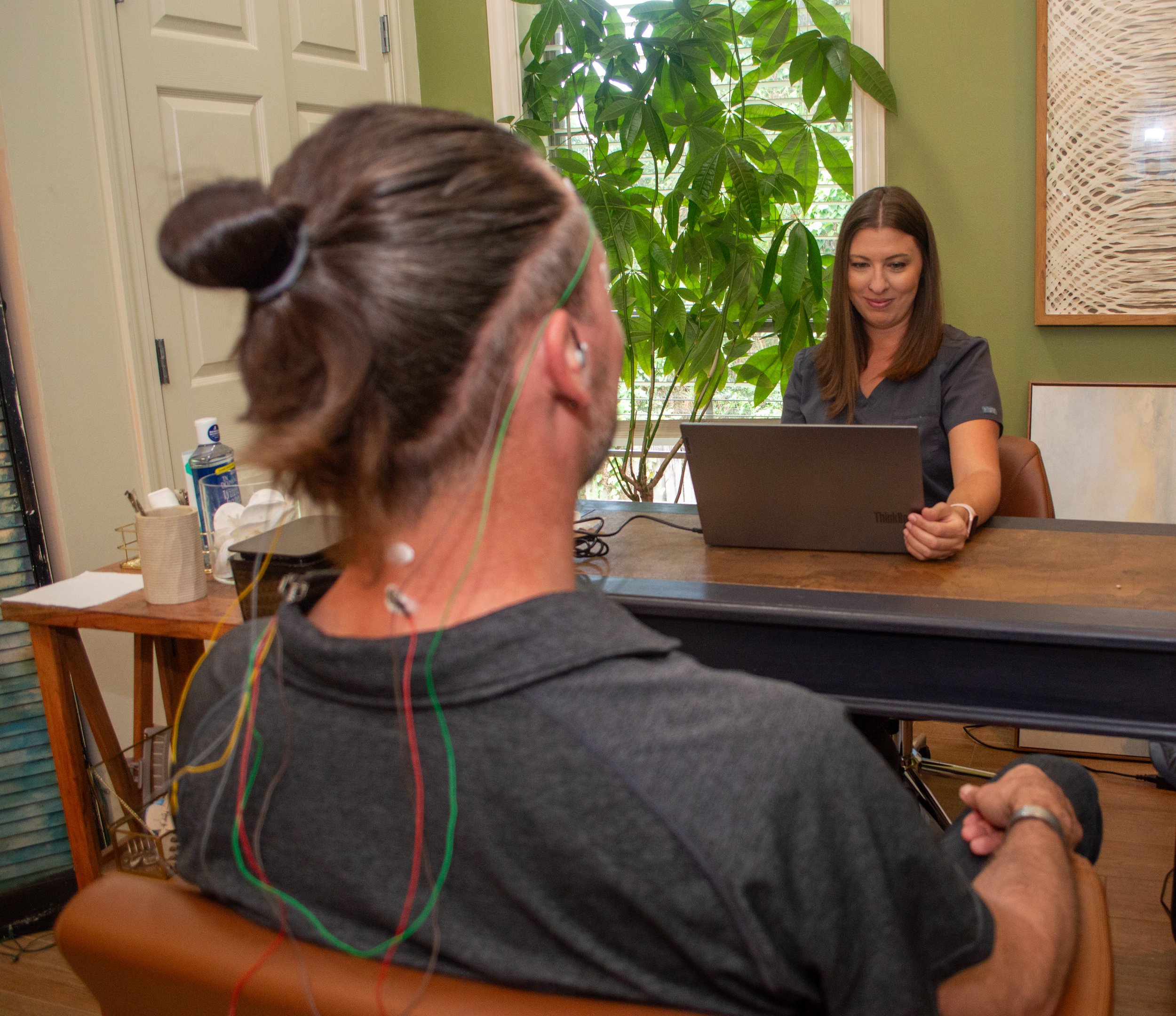
Educational Links
Clinically Researched. Scientifically Backed.
Research into IASIS Microcurrent Neurofeedback (MCN) continues to demonstrate its potential as a powerful, non-invasive tool for supporting brain health. In a 2017 pilot study conducted by the Department of Radiology at the University of California San Diego (UCSD) and the U.S. Department of Veterans Affairs, U.S. Marines returning from deployment with post-traumatic stress (PTS) and traumatic brain injury (TBI) underwent MCN treatment. Magnetoencephalography imaging before and after treatment showed a 54% reduction in brain abnormalities and a 53% reduction in reported symptoms. Participants experienced improvements in sleep, anxiety, headaches, memory, focus, and more. Building on this success, the University of Texas at Tyler has launched multiple formal studies examining the effectiveness of IASIS MCN for addressing anxiety, depression, and slowing the progression of Alzheimer’s disease. Additionally, in collaboration with the Matthews Hope Foundation, UT Tyler is co-authoring a double-blind, randomized study to explore IASIS MCN’s ability to support long-term sobriety and prevent relapse in individuals recovering from opioid addiction.
Curious About the Science? Explore the Research Studies
Introduction of the Institute of Neurofeedback & Biofeedback AG
IASIS Technologies Release: Clinical Study Shows Good News for Concussion Sufferers
Transcranial electrical stimulation shows promise for treating mild traumatic brain injury
Studies using electrical stimulation, neuroimaging aim for new insights on TBI, PTSD
